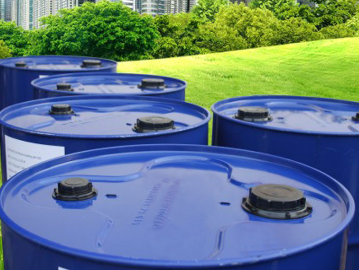
Polyether amine, also known as PEA, is a versatile chemical compound that has found great utility as an additive in the fuel industry. With its unique properties and structure, PEA offers several advantages in fuel additives, leading to improved performance and efficiency. In this essay, we will explore the reasons behind PEA's superior performance in fuel additives, highlighting its effectiveness in cleaning fuel systems, reducing emissions, improving fuel economy, and enhancing engine performance.
One of the main benefits of using PEA in fuel additives is its excellent cleaning properties. Due to its high molecular weight and polar nature, PEA has the ability to dissolve and remove residues formed in fuel systems, such as carbon deposits, varnishes, and sludge. These deposits are commonly formed as byproducts of fuel combustion and can lead to a host of problems, including decreased fuel flow, reduced engine performance, and increased emissions. By using PEA as an additive, these deposits can be effectively dissolved and removed, resulting in a cleaner fuel system and improved engine performance.
In addition to its cleaning properties, PEA also contributes to the reduction of harmful emissions. When fuel burns incompletely, it can release pollutants such as nitrogen oxides (NOx), carbon monoxide (CO), and hydrocarbons (HC). These emissions not only contribute to air pollution but also have adverse effects on human health and the environment. PEA's chemical structure allows it to react with these pollutants and convert them into less harmful compounds, effectively reducing emissions. This makes PEA a valuable additive in fuel formulations, especially in regions where emissions regulations are strict, and there is a growing emphasis on environmental sustainability.
Another area where PEA excels is in improving fuel economy. When fuel systems are contaminated with deposits and residues, the efficiency of fuel combustion is compromised, leading to increased fuel consumption. By using PEA additives, these deposits are removed, resulting in improved fuel atomization and combustion. This, in turn, leads to better fuel economy, as more of the fuel is efficiently converted into useful work. Improved fuel economy not only translates into cost savings for consumers but also contributes to overall energy conservation and reduced dependence on fossil fuels.
Furthermore, PEA has been shown to enhance engine performance by reducing the occurrence of engine knock. Engine knock, also known as detonation or pinging, is the knocking sound that occurs when the air and fuel mixture in the combustion chamber detonates prematurely. Engine knock can lead to several issues, including decreased power output, engine damage, and reduced engine lifespan. PEA works by effectively removing carbon deposits on the piston and cylinder walls, reducing the hot-spots that can cause pre-ignition. Additionally, PEA's cleaning properties help to keep fuel injectors and intake valves free from deposits, ensuring optimal fuel atomization and combustion. By minimizing engine knock, PEA contributes to smoother engine operation, improved power output, and increased engine longevity.
In conclusion, Polyether amine (PEA) offers superior performance in fuel additives due to its excellent cleaning properties, emission reduction capabilities, fuel economy improvement, and engine performance enhancement. Its ability to dissolve and remove deposits in fuel systems leads to a cleaner combustion process and improved engine performance. Furthermore, its conversion of harmful emissions into less toxic compounds contributes to environmental sustainability. By improving fuel economy and reducing engine knock, PEA not only benefits consumers through cost savings but also promotes energy conservation and engine longevity. As a result, PEA has become an indispensable additive in the fuel industry, ensuring optimal fuel performance and efficiency.